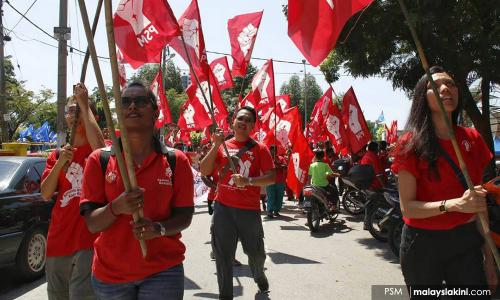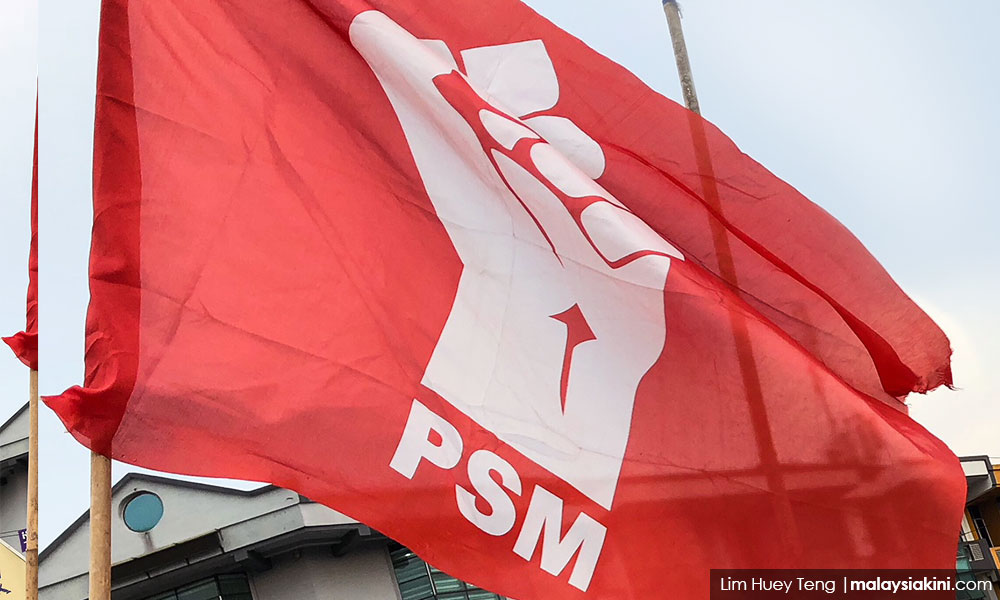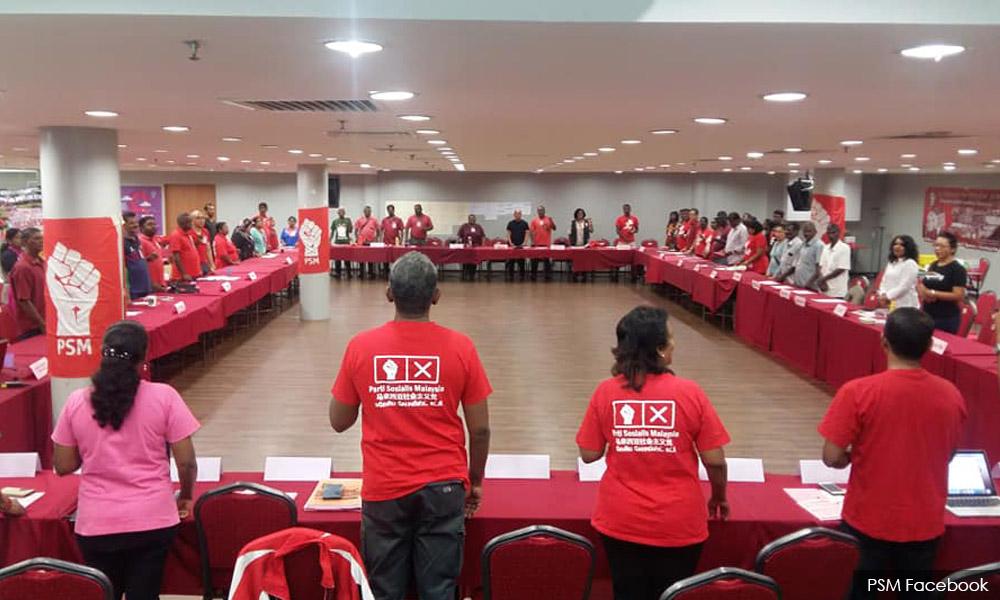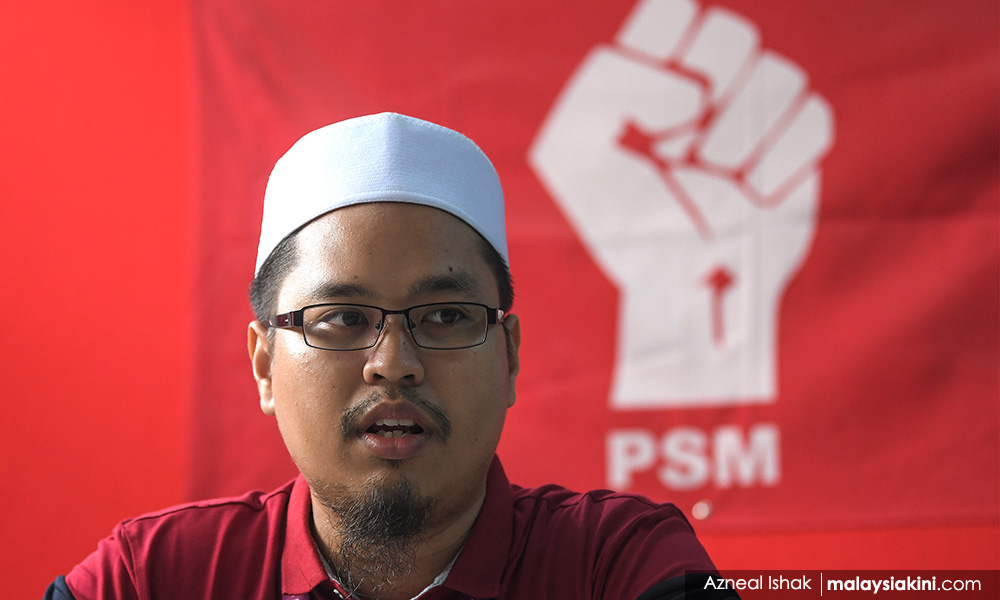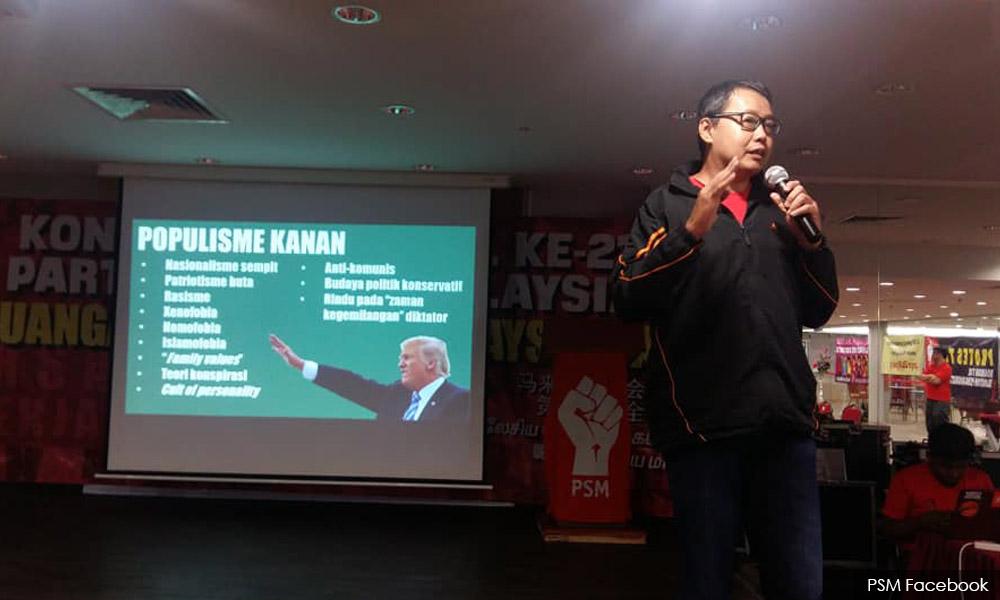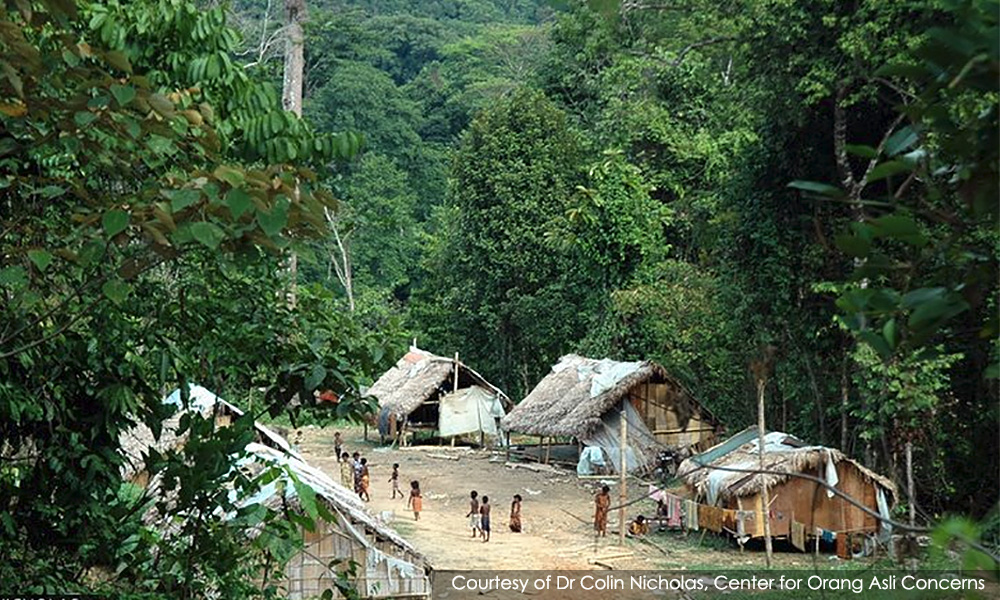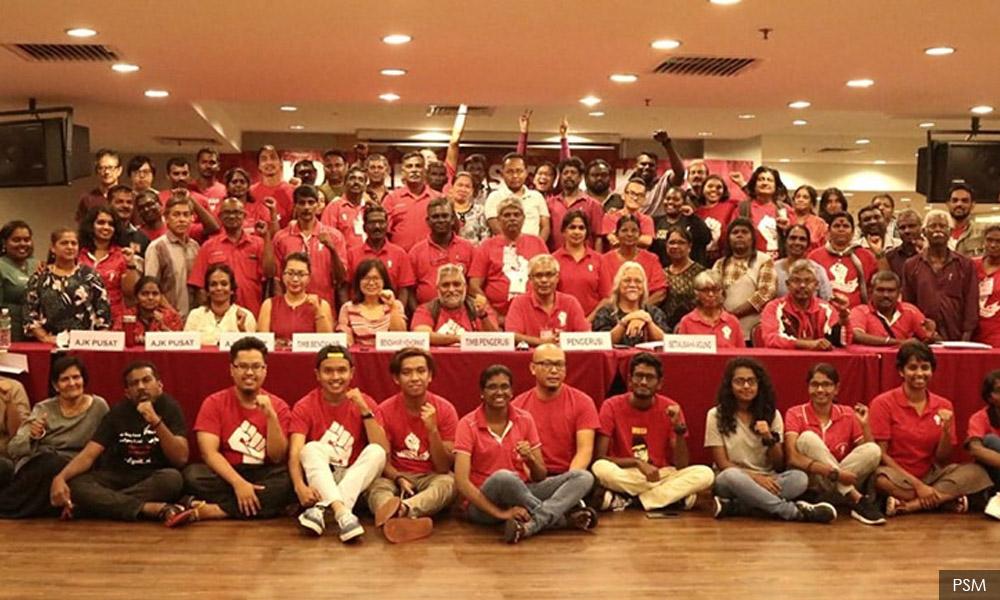PSM crosses 20-year hurdle
COMMENT | It was May 1, 1998. At the front lobby of Selangor Chinese Assembly Hall, Mohd Nasir Hashim, V Selvam and I were excitedly reading an article in The Star.
It was the news of PSM sending in its application for registration, the previous day, at the Selangor office of the Registrar of Societies.
The report questioned whether PSM would survive or fade away like the other socialist parties after the demise of the Socialist Front.
It was then the era following the collapse of the Berlin Wall, the increasing influence of neoliberal policies, and the height of Dr Mahathir Mohamad's authoritarian rule.
The Star report referred to the decline of socialism in local politics after the golden era of the Socialist Front.
It was perhaps referring to Ahmad Boestaman’s Parti Marhaen Malaysia, which was formed in 1968 and dissolved years later, when it merged with Parti Keadilan Masyarakat Malaysia (Pekemas) on July 19, 1974.
Pekemas, formed by Tan Chee Khoon and Syed Hussein Alatas in 1972, itself dissolved 10 years later.
The Social Democratic Party (SDP), which split from DAP, was formed in 1978 and became defunct eight years later, after the 1986 elections.
Now, two decades since its formation, PSM has lasted longer than all earlier socialist parties.
On July 12, PSM celebrated its 21st anniversary with its National Congress in Kajang, home of the Community Development Centre (CDC), which is one of the three fronts that formed PSM – the other two being Suara Warga Pertiwi (SWP) based in Klang-Shah Alam, and Alaigal based in Ipoh-Sungai Siput.
PSM's journey has been an uphill roller-coaster ride. It took the party 10 years to be registered, during which time we won two seats on a PKR ticket.
In 2011, the state clamped down hard on PSM, making it the scapegoat in its attack on Bersih 2. It detained more than 30 leading PSM activists and used the Emergency Ordinance to put six senior PSM leaders – who came to be known as the EO6 – behind bars.
The PSM has won many grassroots struggles and succeeded in pressuring the government to implement the Minimum Wages Order and the Employment Insurance System (EIS), which are of benefit to millions of workers.
Yet, in the 2018 elections, the party faced its worst election outing, losing deposits for all the seats contested, including Dr D Michael Jeyakumar's (photo) Sungai Siput seat.
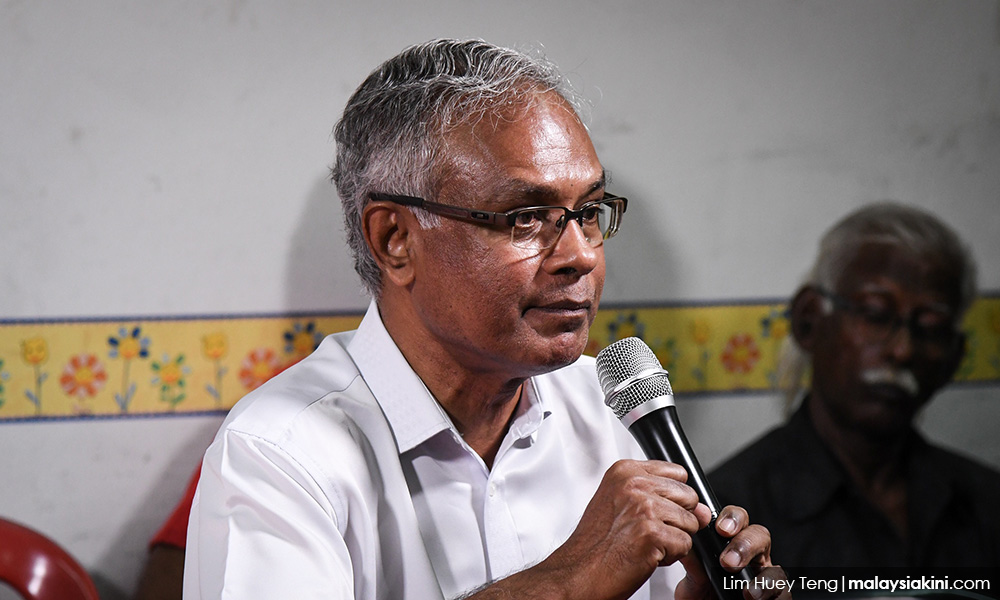
Still, PSM is very much alive and has the conviction and dynamism to fight on.
The recent 21st party congress saw changes to the top two leadership positions, the addition of the state liaison office, and the adoption of a campaign on the critical issue of climate change.
The members, in their closing event, stood up and sang the 'Internationale' spiritedly, followed by loud chants of 'Long live socialism,' and 'Long live PSM'.
The new central committee is made up of a mix of old and new faces, with younger members below 40 occupying 50 percent of the positions, and women, for the first time, outnumbering men.
To The Star in 1998 – we have not faded away into the wilderness.
New friends and missing old friends
The PSM congress, as usual, started on a Friday and ended on a Sunday.
The streets leading to the hall at Plaza Metro Kajang were decorated with the white clenched fist on red background of PSM flags. It was the first time the party held its event at a shopping mall, as the price was reasonable.
The opening event of the congress was the only event open to the public, while the rest of the congress was held behind closed doors and open to selected observers and supporters of the party.
Around 200 people, including delegates and observers, attended the party’s 21st congress.
PSM invited political parties, NGOs, unionists, activists and the media for the opening session. The highest dignitary to attend the event was the Venezuelan ambassador Morella Barreto López.
Surprisingly – or unsurprisingly to some – none of the Pakatan Harapan parties invited came for the congress.
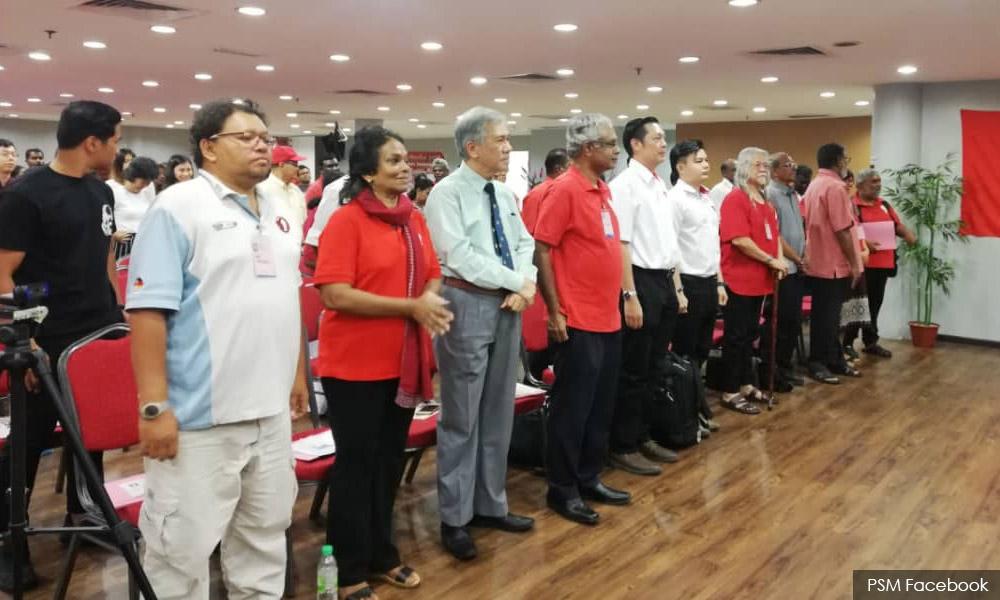
The congress was attended by three political parties, our old ally PRM represented by Mohd Syafiq, and Benz Ali from Parti Murba, a new left-wing party and ally which is yet to be registered.
Gerakan, for the first time, made its debut at our congress. The party was represented by its secretary-general Mah Kah Keong.
Also among the guests were Thomas Fann from Bersih, K Soma from the Malaysian Trades Union Congress, A Jayanath from Saya Anak Bangsa Malaysia, Visva from Edict, Dobby Chua from Suaram, lawyer Roger Chan, Yu Ren Chung from the Women's Aid Organisation, Jessie R from Persatuan Sahabat Wanita, Mohd Ariff Mohd Daud from Institute for Research and Development of Policy, Annuar Mahmood from Idris Institute, Fitri from Padi Rescue, Chee Yoke Ling from Third World Network, and our faithful Chong Ton Sim from Gerakbudaya.
Also present were community leaders from the various struggles PSM has been involved in near Kajang and Hulu Langat.
PSM also received solidarity messages from all over the world. We received messages from political parties from Australia, Brazil, Hong Kong, India, Germany, Indonesia, Pakistan, Egypt, Italy, France and the US.
Among the organisations sending solidarity messages were Australia's Socialist Alliance, Brazil's Landless Workers Movement, Fourth international, France's New Socialist Party, Egypt's Socialist Popular Alliance Party, Germany's Die Linke, Hong Kong's League of Social Democrats, Communist Party of India (Marxist-Leninist) Red Star, Italy's Power to the People, Pakistan's Awami Workers Party, Partai Indonesia's Pembebasan Rakyat and the US' Workers World Party.
This gives an idea of PSM's international links. The party values its comradeship with these organisations, with whom many networks have been built and struggles waged in the spirit of the international struggle against capitalism.
PSM does not belong to any left tendency in the world, but believes in the spirit of internationalism and the call of 'workers of the world unite'.
Goodbye chairperson Nasir
The highlight of the opening was, of course, Nasir’s keynote speech. There was also a surprise video tribute with pictures of him in various struggles.
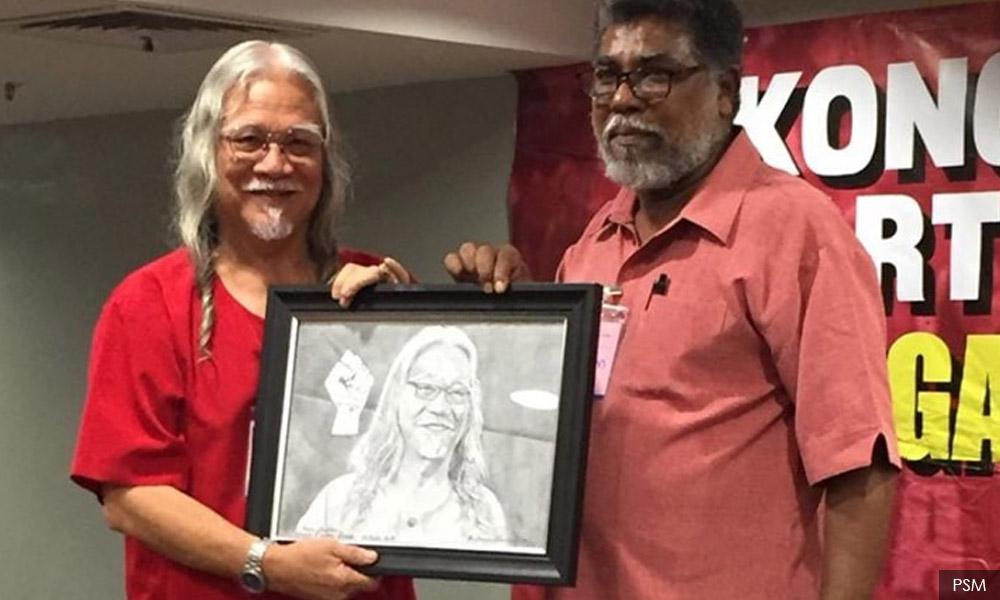
Selvam – Nasir’s comrade in arms – also spoke about the defining moments in the struggle and the many breakthroughs both have made.
Nasir was then presented with a portrait of himself by the central committee. As expected, he was very humble. He cautioned members not to hurl praises on him as it was all teamwork, and pledged to continue with the party's struggle.
A standing ovation was given to Nasir when he ended his speech, something which has never happened before in our congress. It was a spontaneous act that showed how much party members loved and respected him.
During the debate on the party resolutions, there was a motion to set up an advisory council of PSM veterans, as seen in many parties today.
Yet after a debate, this motion was defeated. Some felt that such a motion in creating new structures just to accommodate veterans would be feudal. Nasir himself was happy that the party did not take such a position.
New chairperson Jeyakumar, in his winding-up speech, told Nasir to be always with us. And to ensure his continued participation, members elected Nasir as one of the five disciplinary board members.
For the record, Nasir has firmly upheld the ideals of socialism and his principles have never wavered. His leadership has always been based on consensus and participation.
Since it is acknowledged that there is no retiring from the fight against capitalism, Nasir will be around as long as the struggle goes on.
Debating the chairperson’s address
This was the first session after the opening session. Here, branch leaders addressed and critiqued the chairperson's policy speech, which was circulated a month before the congress. A total of 18 members spoke in this session.
Most of the issues raised were confined to three areas. Since it was Nasir’s last address as chairperson, there was much praise of his leadership.
One of the main critiques was that PSM must portray itself more like a political party than an NGO.
Some felt that PSM’s extension work in certain sectors and the kind of work we do have given people the perception that we are an NGO rather than a political party, and not interested in winning power.
Another critique was that PSM has been doing lots of work at the grassroots, but has failed to give proper analysis linking its work to socialism.
It was felt that people need to be empowered, which is being done, but they are not liberated ideologically from the current system. This is where our work and analysis must come hand in hand.
The third critique was that PSM is too serious a party with hardly any mesra rakyat programmes, since too much of our time is spent on fighting issues – terminations, evictions, etc.
PSM hardly does general programmes to bring people together in a non-crisis environment. Therefore, it was decided that a different kind of approach would be needed.
Party elections
PSM party elections are normally boring and routine. This year, the routine was broken as members were forced to elect a new chairperson and deputy chairperson due to a party resolution in 2007.
If nominated, members are given the right to withdraw, then these positions will go uncontested because there is a tradition among party members to not seek positions.
The election of Jeyakumar and myself as chairperson and deputy chairperson was quite expected, given the fact that we received the highest nominations for these positions.
The other four positions in the top six posts remained unchanged, except that we have a new deputy treasurer.
For the PSM central committee, nine positions are elected, making it a 15-member body. A total of 32 people were nominated to fill nine positions. Several old faces were re-elected, including M Saras, who was elected as a central committee member.
This election also saw a mix of interesting new faces. Among them were former Tanjung Bungah assemblyperson Teh Yee Cheu, LGBTQ activist Chong Yee Shan, Jaringan Rakyat Tertindas member Y Kohila and youth activist Sharan Raj.
Notably absent from the central committee are Malay members, a situation which the party needs to address by making appointments.
Recent statistics show that Malay membership in the party actually increased to 25 percent. This is significant, as a decade ago, Malay membership was less than five percent.
Currently, the Youth wing of the party is led by Nik Aziz Afiq (photo), while the Women’s desk is led by Nurhayyu Zainal.
Debates and motions
Every year, the most interesting and tiring session is the debate on party motions. This is an important session because whatever is passed here has to be implemented by the central committee. This year, a shortlisted total of 18 motions raised by 13 branches were debated.
Nik Aziz and Dr A Cecelia were elected as speaker and deputy speaker to conduct this exacting task.
We estimated the entire debate to end by midnight, but once again we were proven wrong. The central air-conditioning in the venue stopped at 10pm, but that did not deter the debate from dragging on until 1.40am.
Interestingly, several motions, even those brought by party stalwarts, were democratically dismissed by members.
One motion by the Sungai Siput branch that the party should not contest in traditional seats in the next GE if there was going to be three-cornered fights was heavily attacked by other members, and the branch finally decided to withdraw the motion.
Another motion to focus on elections in only two states and make the current conditions to contest less stringent, was also rejected by the majority.
One interesting motion was the debate on banning plastic at all PSM events, which was passed after several modifications. A motion to look again at nuclear power as an alternative energy source was also rejected by a simple majority.
Jeyakumar spoke passionately on the need to set standards for PSM elected representatives. He argued that only a part of their salary can be considered theirs, and that the rest should go to the party.
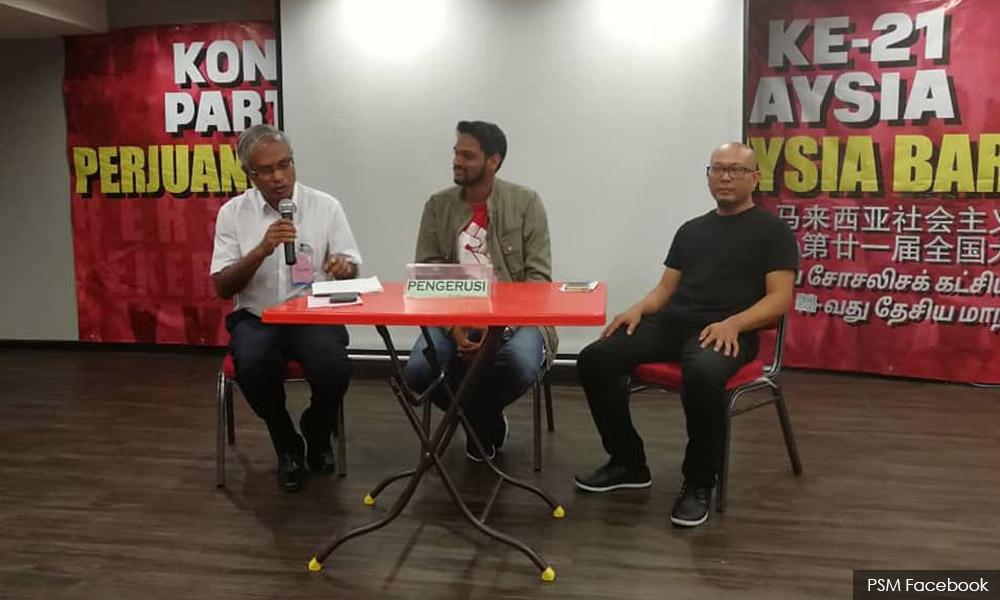
Specifically, the motion his branch proposed stipulated that elected representatives must take home an amount that is not more than 1.5 times the total median income.
He also proposed that those who wanted to buy assets after winning elections need to consult a special committee. A huge debate ensued, as some felt that these motions were premature, since PSM was not winning seats anyway.
Yet, the call to live a moderate lifestyle and live by socialist principles was put forward strongly and the motions were passed.
One of the toughest motions was the one on setting up the state office. Though there was general consensus to form it, yet the motion saw fierce debate and was adopted after much modification.
Under this, a state office will be set up in all states, and funds need to be raised for the purpose.
Climate emergency and right-wing populism
The congress also approved two campaigns to be considered as national campaigns for the party. One was on the climate emergency and the other on local elections.
PSM also, for the first time, put forward and passed a policy paper titled “Handling Climate Change: A Green Alternative for Malaysia.”
This topic had been discussed by a committee headed by Sharan and Jeyakumar. There was much debate on the paper, and it was accepted by the delegates with the proviso that the final blueprint needed to be further enhanced, because there were still some minor issues which needed to be ironed out.
In line with that, PSM will launch a national campaign to urge the Pakatan Harapan government to declare a climate emergency.
One of the important issues discussed at the congress was the rise of right-wing populism, which is making sweeping inroads in the world, as well as in Malaysia.
This phenomenon was discussed in a paper presented by PSM central committee member Choo Chon Kai (photo) and special guest Zaid Kamaruddin from Pertubuhan Ikram Malaysia.
PSM feels strongly that we need a stronger third voice, since Harapan has regressed on this issue and has retreated to BN standards.
PSM needs to build the forces of the left and the centre to create a massive opposition to this right-wing onslaught, which will be bad for unity as well as humanity.
Resolutions
The 21st party Congress ended with PSM debating and finally putting up 13 resolutions to the Harapan government.
One resolution calls on the government to strictly enforce the eight-hour workday and the mandatory rest day for every worker. Currently, forced overtime on rest days has deprived workers of their right to a day off each week.
In the same spirit, PSM also calls upon the government to set an example by abolishing the contract system for permanent jobs in government premises, and absorb all related workers into public service.
On the issue of housing, PSM calls upon the government to build at least 200,000 units of rent-to-own houses a year, which is 100,000 more than the target set by the Harapan government. It also calls for the price of affordable housing to be fixed at below RM100,000.
On the question of environmental protection, PSM calls upon the government to declare a climate emergency immediately, and take appropriate measures to address the climate crisis. This includes ways to completely eliminate single-use plastics nationwide.
PSM also calls upon the government to establish an independent special commission to investigate current environmental issues and prepare a report for each issue within three months.
PSM also calls upon the government to restore local elections by 2021, since there is no deadline to implement this. Previously the Selangor government had set a deadline, but they have yet to implement it in the state.
PSM also calls upon the government to improve public transport, including free shuttle services by state governments to ensure bus services penetrate B40 communities and resettlement schemes in urban poor areas.
On healthcare, PSM calls upon the government to take serious steps to improve the quality of public healthcare services and increase the number of public hospitals for better access.
On education, the government should ensure the teaching of science and mathematics in mother tongue languages in primary schools, and ensure all Malaysians receive education at public educational institutions, regardless of race or religion, with priority for B40 communities.
On the question of food security, the government must provide land for farmers, as well as develop ways to improve agricultural yields and achieve self-sufficiency in food supply in the country.
The government must also protect the customary land rights of indigenous peoples, and immediately resolve health problems, poverty and other problems that overwhelmingly affect these communities.
PSM also calls upon the government to enact a Sexual Harassment Act. Clauses on sexual harassment in the existing Employment Act 1955 are not sufficient, as sexual harassment can happen anywhere and anytime.
Meanwhile, PSM strongly feels the government must take measures to stop the attacks, threats and discrimination against the LGBT community.
On economics, PSM calls upon the Harapan government to review and update the national poverty line income figure, in order to reflect the reality and take necessary measures to eradicate poverty, as well as implement a universal pension for all senior citizens.
On institutional reform towards a corruption-free nation, the government should establish a system of public funding for all political parties, in order to curtail money politics.
While PSM welcomes the recent call for MPs from both sides of the divide to declare their assets, we also call upon all senior officials in all institutions, including the judiciary, the MACC and others, to declare their assets annually.
A world to win
Socialism in Malaysia and PSM have come a long way. We understand that we need to fight the right-wing forces, which are bad for unity, and for those fighting for an equitable system.
We need to fight capitalism, which puts people before profit. Capitalism believes in making a small minority super-rich at the expense of the immense majority.
To deal with all this, PSM cannot be fighting the battle alone. The party needs to grow in membership.
It needs to appeal to the middle classes in society as well and champion their issues. The party needs to build allies and build coalitions with civil society and like-minded political parties.
We have chains to be broken and a world to win.
We need to engage with and be critical of the new government. In Marxist terms, advancement happens through a dialectical process.
In a recent interview with Free Malaysia Today, our new chairperson said, “But we won’t be a slavish ally and we won’t be an irrational foe either.” I think this sums up PSM’s stand on the issue.
We are a rational party, but never take us for granted. We will never play the game which enriches a few rich and powerful over the majority.
Long live socialism and PSM!
S ARUTCHELVAN is the deputy chairperson of PSM.
The views expressed here are those of the author/contributor and do not necessarily represent the views of Malaysiakini.
RM12.50 / month
- Unlimited access to award-winning journalism
- Comment and share your opinions on all our articles
- Gift interesting stories to your friends
- Tax deductable
